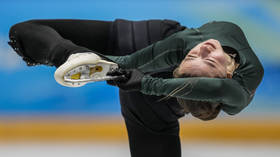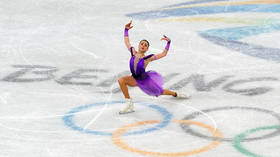Cause of Valieva doping claim revealed

The International Olympic Committee (IOC) has responded to criticism after Russian figure skating star Kamila Valieva was cleared for competition at the Beijing Olympics.
Valieva is free to line up in the women’s singles event on Tuesday after the Court of Arbitration for Sport (CAS) rejected an IOC request to reimpose a suspension on the 15-year-old.
The Russian star returned a positive doping test last week, which was only revealed after she had helped the Russian Olympic Committee (ROC) to win gold in the figure skating team event. Coverage of her case has dominated the ongoing Games in Beijing.
Denis Oswald, a member of the board who heads the IOC’s Disciplinary Commission, responded to criticism of the decision to let the teenager continue her participation by saying her case had nothing to do with allegations of state-organized doping, which Russia first faced in 2014.
Russian athletes are banned from competing under the national flag due to the lingering effects of that scandal and have been subject to increased scrutiny by sports officials and the media.
Responding to questions during a daily press conference on Tuesday, Oswald said Valieva and the national team had suggested that accidental contamination may have been the cause of her positive test for the banned heart drug trimetazidine.
"Her argument was this contamination happened with a product her grandfather was taking," Oswald said.
Oswald’s words were later contested by the IOC. It told TASS that the official was not present at the CAS session and was simply repeating what he had heard from the press.
The test sample at the center of the doping controversy was taken in December at the Russian national championships. A WADA lab in Stockholm only reported it after Valieva and her fellow Russian skating stars won gold in the team event in the Chinese capital.
There has been suspicion in Russia surrounding the timing of the test results, as they arrived around six weeks after the sample was taken.
The IOC has already said it will not hold a medal ceremony for the figure skating team event in Beijing, or for the ladies' singles event if Valieva wins a medal, as the case is ongoing.













